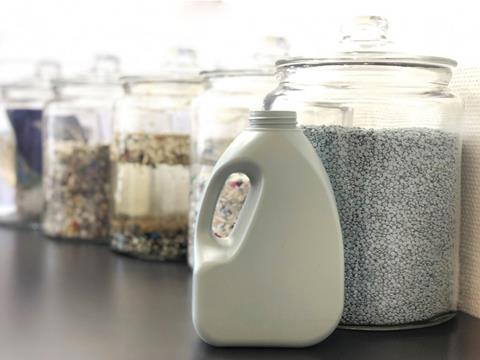
The Danish Technological Institute is leading a new project through which it hopes to improve recycling technology in order to pave the way for more plastic waste to be recycled for the same use, rather than being downcycled.
Project manager, Sofie Kastbjerg, says: “Although in Denmark we are good at collecting plastic packaging from households, only a small part of the plastic is turned back into products of the same quality. The Et MUDP project, supported by the Danish Environmental Protection Agency, must now pave the way for more plastic recycling to be made circular.
“Too much plastic waste is downcycled into products of lower quality than the original, and this will not work if we are to achieve the ambition of a circular economy for household plastic. Therefore, we must become good at maintaining the original quality of the plastic when it is reprocessed for subsequent recycling.”
In the project, the Danish Technological Institute has assembled a consortium with Aage Vestergaard Larsen A/S, Schela Plast A/S – now part of the Robinson group, and Nopa Nordic A/S – three important sections in the plastic supply chain: waste collection, manufacturing and end-user.
Household plastics are a very mixed waste fraction with products that have very different quality standards and content that may have penetrated the plastic, for example, perfumes from fabric softener. This makes it difficult to recycle the plastic into certain packaging for example for hypoallergenic detergent and cosmetic products.
In this project, the partners want to optimise the current reprocessing technology so that it becomes possible to reduce the number of undesirable substances in the waste stream. They hope that this will pave the way for an up-cycling of the mixed plastic to create new applications, for example project participant Nopa Nordic, which requires recycled packaging for their cleaning and care products.
During the project, Aage Vestergaard Larsen's new reprocessing technology is being developed with the aim of cleaning up and melting household collected plastics made from PE into high-quality plastics that meet product-specific requirements.
“It is a prerequisite that we maintain a clean stream of high-quality materials if we are to ensure that the plastic is recycled again and again. With the further development of our new reprocessing line for household collected plastics, we expect we can deliver materials from household collected plastic that are even higher quality than before,” says Franz Cuculiza, CEO at Aage Vestergaard Larsen.
The project will run until 2023 and is supported by the Danish Environmental Protection Agency's Environmental Technology Development and Demonstration Programme (MUDP).
















